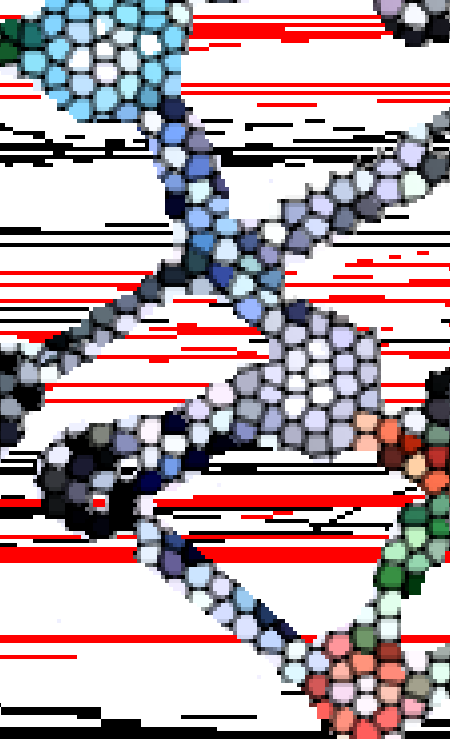"Spunky Cluster (Beats)" [mp3 removed]
Daniel Albright on Poulenc and Surrealist Music
1. "When we look at musical compositions that might be called surreal--works by Poulenc, Martinu, Ravel, and so forth from the 1920s--and compare them to Schoenberg's early twelve-tone compositions, also from the 1920s, we notice that the surrealist works seem strikingly conservative in certain ways. Melodies tend to move in a conjunct, singable manner; harmonies rarely grate; structures are often easily assimilated and full of predictable recurrences. But it is a mistake to think of Schoenberg as a more modern or venturesome sort of composer than Poulenc, because Poulenc attacked musical conventions as fiercely as Schoenberg, not on the level of harmonic syntax, but on the level of semantics. As a harmonist, Poulenc was, compared to Schoenberg, a child; but Schoenberg's Moses und Aron (1930-32) depends on interpretive cues every bit as simple and rigid as those of Saint Saens's Samson and Delilah (1875)--as soon as the spectator learns that triadic figures, instead of chromatic figures, represent evil. Poulenc was original not in the way that his music sounds, but in the way that his music means." Untwisting the Serpent at 288 (emphasis in the original).
2. "The charm of Poulenc arises from his unusual adeptness at working out fluid systems of musical meaning while bobbling along on rivers of disabled textual systems." Id. at 305.
3. "The surrealism of Poulenc and his fellows didn't try to create a new language of music--it simply tilted the semantic planes of the old language of music." Id. at 289.
4. "Auden once wrote that music cannot lie but I think these passages [Honegger's funeral march for Cocteau's Les maries de la Tour Eiffel] are evidence that music can lie." Id. at 291.
Dream
I was working on a painting and it was not going well. This must have been a flashback to art school because I was sitting at a table with other people while I was working. Part of the painting was abstract but I was trying to do this illustrational thing up in one corner. Someone showed me a book of cartoony drawings done in gouache or acrylic that looked like a cross of Robert Williams and David Sandlin. They were really good and just made me frustrated that my own piece wasn't going well. I started heaping paint on my canvas, giant crinkly wads of it, so that it was sliding off the sides and getting all over the table and my hands.
Just then, a college friend of mine walked in and sat down at the table. He was a heavy set individual, and brought with him a breakfast tray groaning with food. Three or four stacks of pancakes, each stack about 8 or 10 pancakes high, giant heaps of bacon strips, everyone at the table was staring in awe at the food, which looked like an art installation (and was certainly more interesting than my painting).
Update: Freudian explanation: my landlord has been varnishing the floor outside my apt. and my downstairs neighbor likes to cook bacon and eggs.
Cheney Still Speaking
ABC interviewed Dick Cheney, the VP too good to impeach, during his recent Middle East junket.
When asked about the toll multiple deployments have taken on U.S. military members, Cheney sarcastically asked the reporter how she would deal with it. Meaning he didn't know how he should.
A week earlier the same reporter asked Cheney about polls showing that "two-thirds of Americans say the fight in Iraq is not worth it."
Cheney's reply was "So?" The new meme the Administration is putting out is that Lincoln, like Bush, was also unpopular and weighed down heavily by a war. The countermeme is Honest Abe was re-elected in 1864 at the bottom of his popularity. Also an elective war in Iraq isn't the same as a war of national unification where a key issue was slavery.
Cheney's views on the world and politics are roughly at the level of old guys you see sitting on courthouse steps in small towns, whittling and hawking phlegm onto the sidewalk. It's disturbing he's still being given a respectful forum to air them and inflict them on others.
Update: Evidently the Lincoln analogy wasn't going too well so now Cheney's saying the Iraq War is like Ford's pardon of Nixon (i.e., reviled at the time but best for all in the long run). Whatever, Dick.

